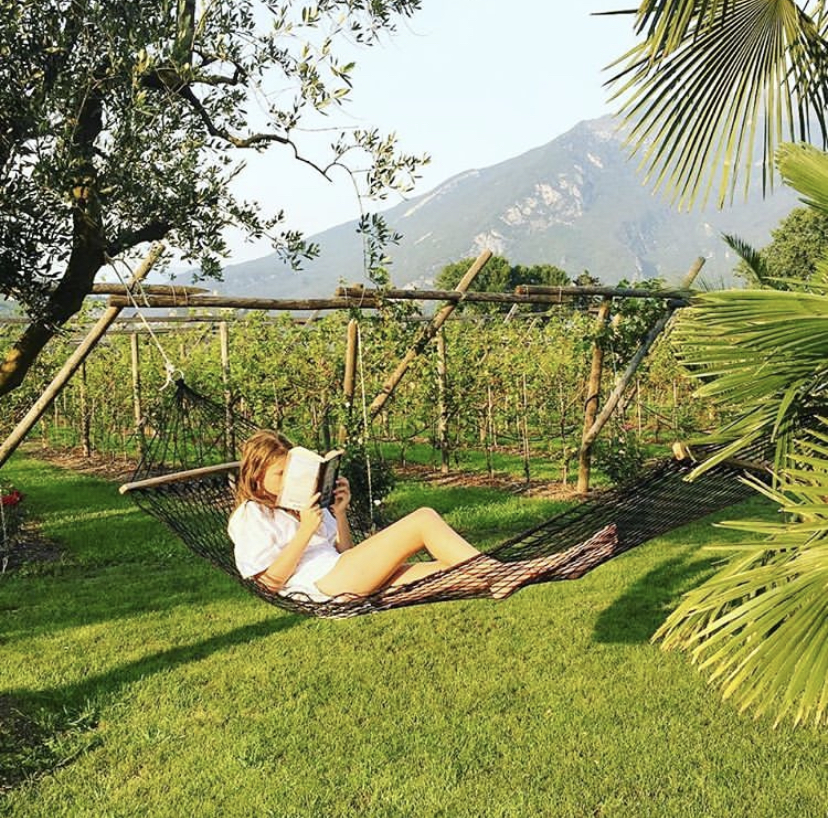
There’s something very positive about defined seasons that punctuate the lifecycle of a year. Different chapters where the backdrop is altered to set a new tone, as the story of the year unfolds. I’m thinking specifically of the mesmerising scene in Richard Curtis’ film, ‘Notting Hill’ where the lovelorn (and aptly bookish) Hugh Grant strides through Portobello Market, and in the space of 100 seconds, passes through an entire year. Setting off in summer amid piles of ripe peaches (5 for £1), he shields himself from autumn rain, passes Christmas poinsettias set against flurries of snow, which dawn into optimistic rays of Spring sunshine amongst yellow flowers by the truckload, all to the tune of Bill Withers’ ‘Ain’t No Sunshine.’ And now, as the summer days draw to a close, I tentatively ease back into my jeans, shake the sand from my beach bag, and dust off the pile of ‘summer reads’ I purchased with excited anticipation back in late Spring. Dog eared and bleached by the sun despite the odd smattering of SPF. The season of the ‘Beach Read’ has passed again as we move into a new academic term of buttoned-up structure once more.
So, in true Carrie Bradshaw style, ‘this got me to thinking’, do we pair our reading with the seasons, and if so, what really constitutes a ‘Beach Read.’ And perhaps most importantly, can I enjoy a Beach Read on my sofa, in sub-zero, mid-December?
It’s unsurprising that more books sell in summer than any other season, not least because for most of us, the schedule lightens for about two weeks when we check out of the daily grind and check into a hotel and on to a sun lounger. We try to escape our everyday lives in body, but, as Alain de Botton so eloquently establishes in ‘The Art of Travel’, “the selves we imagine we’ll be on vacation [with are also] the selves we never stop inhabiting.” Therefore we crave a temporary escape and that is found perhaps in what the crowdsourcing online Macmillan dictionary defines as, “a book you can take on holiday, which is good enough to keep you engaged but not so serious it will spoil your holiday.” The Beach Read, a far cry from the densely cumbersome Victorian volumes that grace many high school summer reading lists, or even the masterfully crafted contemporary novel full of human struggle and angst. The Beach Read, decorated in vibrantly colourful jackets, enticingly stacked to dizzying levels in every bookshop like candy at the checkout. The Beach Read, seductively pulling you in with the promise of ‘the perfect summer read’ lacing its way across the front cover.
Books, literature, indeed writing as a pastime have been viewed historically as a vehicle of intellectual improvement, a widening of the mind, and it is perhaps because of this, that the Beach Read (and its intertwined genres of Chick Lit and Rom Coms) has been dismissed as nothing more than a guilty pleasure requiring less talent on the part of the author, and less intellect from the reader. The theme is cleverly addressed in Emile Henry’s novel ‘Beach Read’, yes you read it right, it is what it says on the tin. A highly enjoyable, very funny novel about two authors of very different genres and their ensuing romance. It addresses head on the snobbery reserved for the Beach Read genre, and does so in such a way I was captivated and laughing out loud. I don’t laugh at everything, and I’d say it takes considerable literary talent to hook me in and make me laugh over the length of a novel.
And so I’ve decided that, of course I shall continue to seek out books that feed my mind, and educate me, and improve my knowledge of worlds I don’t experience first hand. But, the ‘Beach Read’ will also regularly feature during my reading year, for its ability to allow me to escape to a good place for pure heartwarming enjoyment where everything turns out well in the end. After all, pavlova has little nutritional value, but it’s still bloody delicious and I, for one, am not giving up desserts until next summer. And, like Bill Withers, I know, without any Beach Reads on my bookshelf, there ain’t no sunshine.
Love it!